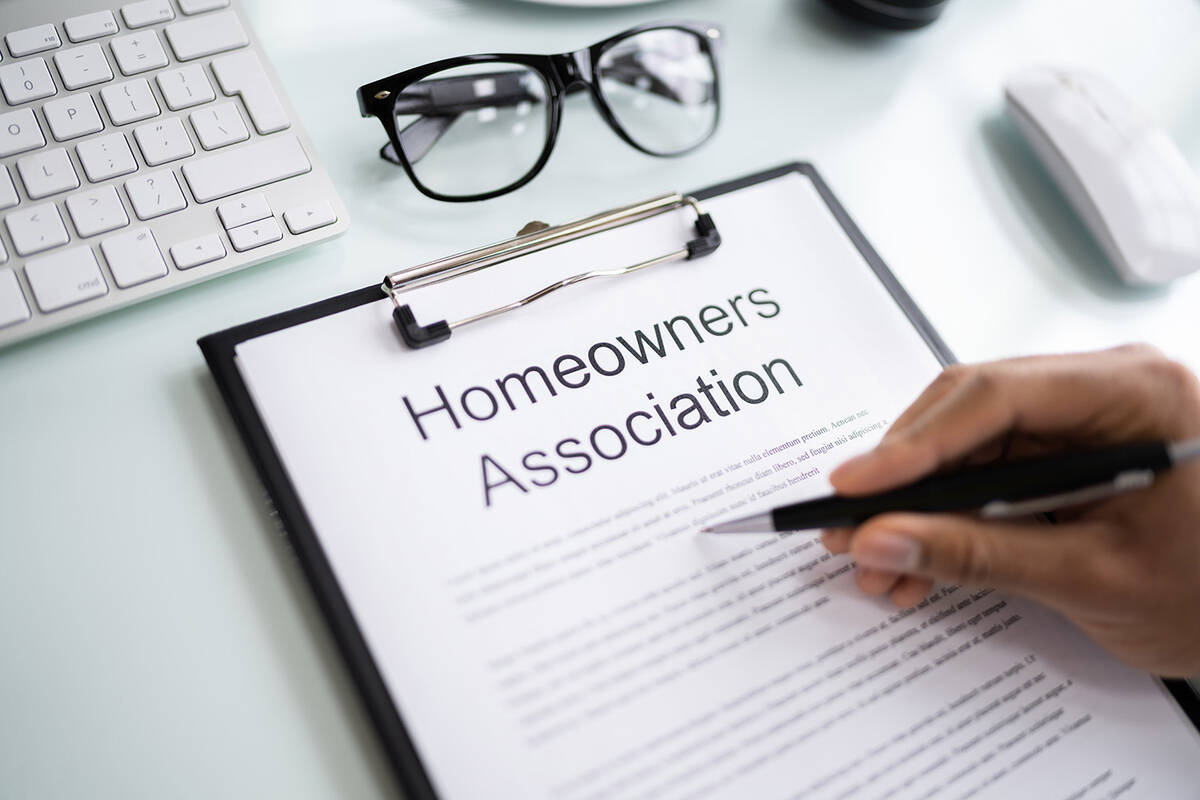HOA tells homeowner to remove rainbow flag
Note: As we end another year with Christmas around the corner, I wanted to take this opportunity of wishing my readers a wonderful holiday week. It would be wonderful if we could maintain the holiday good wishes, cheer and joy beyond the Christmas day. We can!
Working together as a team; working together to find optimum solutions as there truly are no ultimate solutions to the many problems and issues that we face not only with our homeowner associations but with life itself.Go into 2024 with a smile on your face. Happy New Year and may your New Year be full of wonderful days.
Q: I live in a large homeowners association community in Las Vegas. Recently the HOA pressured a homeowner to remove a rainbow flag. Apparently, a conservative resident was offended by a sign of inclusion and harmony. The reason given was that “statement” flags are prohibited. However, conservative-leaning flags symbolizing supremacy and intolerance flew unchecked. This makes me wonder: Can election candidate signs be prohibited as they are statements and certainly divisive? The HOA says laws protect these. Is this so? Also, can a resident asked to remove a flag refuse when “the other side” is allowed?
A: Nevada Revised Statutes 116.320 pertains to homeowners’ rights in displaying flags. The law does not allow an association from prohibiting a unit owner in displaying the flag of the United States or the State of Nevada within their physical portion of the association that they occupy. There are conditions that a unit owner must abide by such as the flying of the American flag must be displayed in a manner that is consistent with the 4 U.S.C. Chapter 1.
Under NRS 116.325, an association must not prohibit a unit owner or an occupant of the unit from exhibiting one or more political signs within their physical portion of the community that they occupy. The law defines political sign to mean a sign that expresses support for or opposition to a candidate, political party or ballot question in any federal, state or local election or any election of an association. Again there are specific requirements such as the size of the sign not to exceed 24 inches by 36 inches.
Other than these NRS 116 laws, an association can establish other rules and regulations as to signage, such as the removal of the rainbow sign, but an association must be consistent in applying their rules. In your case, if the association is requiring a homeowner to remove their rainbow sign then the association should require the homeowner with an intolerance flag to also be removed.
Q: I am the president of a local condo community with 550 residents.
We have two-story buildings. One resident on a lower level complains of marijuana smoke from the upstairs unit. She states he smokes on his balcony and inside his unit causing her condo to smell of stinky smoke. She wants the HOA to “do something.” She claims her closets and her clothes smell of this weed. (As far our HOA knows, the ductwork is all separate to each unit.) We have stated that Nevada has a legal marijuana law for smoking in your residence. Is the balcony considered part of his home?
I have a sensitivity to smell. I also have a resident in an upper unit that I believe smokes on his balcony. I have never experienced the weed smell coming into my unit. I am not saying it is impossible for the smoke to travel. I am just wondering what the heck can, if anything, an HOA do?
I did ask her if she has ever approached him to politely complain? The answer was no. Our community is for residents 55 and older.
A: My understanding of the law is that you cannot smoke marijuana outside, so smoking on the balcony would be against state law (even though the federal government prohibits marijuana anywhere).
Your association would follow any rules and regulations that are on the books pertaining to nuisance — i.e., unwanted smell that disrupts the enjoyment of a neighbor’s right to occupy his or her unit. You would need to have your legal counsel review your covenants, conditions and restrictions and help the board develop the appropriate rules that would apply for any unwarranted smell.
Barbara Holland, CPM is an author, educator and expert witness on real estate issues pertaining to management and brokerage. Questions may be sent to holland744o@gmail.com.
















